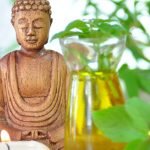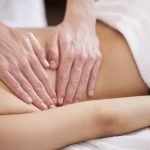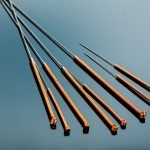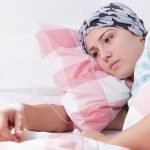Men In Groups: How Men Can Bring Out the Best In Each Other
STEVEN RISSMAN, ND
Manhood is the defeat of childhood narcissism. (David Gilmore 1990)1
During the past few years, men’s behaviors have been called into question on an increasingly public scale. Issues surrounding the role of men in work, in relationships, and in society are forcing an inquiry into the conduct of men in general, and specifically into the ideals many men may hold around masculinity. I might agree that this query is long overdue, but that doesn’t make the process of introspection any easier. As a man, I’m no stranger to the sometimes harsh question of whether I am doing a good job of representing my own understanding of what it means to be a man … the question of whether I am doing “manhood” right? To support young men wrestling with their own self-examination, I developed a men’s health academic program at Metropolitan State University of Denver, where I’ve been teaching men’s health curriculum for more than 15 years. I am often buoyed by the courage of young men to sit in a group and reflectively look at their behaviors and how they influence various aspects of their lives, including their health. I believe the world needs men to show up more whole, more authentic, and more resolved in their understanding and expression of their masculinity. The group forum is an essential medium to help men develop healthy masculine behaviors, and I encourage naturopathic physicians to explore ways to better utilize the group experience for men in their practices.
Challenging Feelings
In 1969, Lionel Tiger wrote Men in Groups, a seminal work on understanding male social behavior.2 Tiger coined the phrase “male bonding,” referring to camaraderie, friendship, or cooperation between men.2 The phrase took off because it represented a contrary expression to the common experience of many men at the time – a growing sensation of isolation, stoicism, and potential irrelevance. Unfortunately, some of these negative feelings still exist for many men. Martin Wong, who wrote about the challenges to the group experience in 1978, postulated that men feel expendable in modern society.3 In a 2010 article titled The End of Men, Hanna Rosins asked the question, “What if the modern, postindustrial economy is simply [less] congenial to … men?”4 She also posited, “The postindustrial economy is indifferent to men’s size and strength. The attributes that are most valuable today – social intelligence, open communication, the ability to sit still and focus – are, at a minimum, not predominantly [masculine].”4 Boys and men are socialized to hold their cards closely, not to communicate or express emotion, and are left open to ridicule when they do open up. To fit into the “manly” ideal, boys and men often sacrifice emotional intelligence, which can support their inner sense of being a man in some situations, but does little to help them feel adequate as a part of a broader society. Skills like active listening, critical thinking, and compassionate communication now eclipse physical brawn and stamina, yet it is unclear where many men would find a safe place to develop these skills, or how they might try to reconcile learning them with their previously held beliefs about masculinity. I have seen many men misguided in their search for acceptance. Sebastian Jung, author of Tribe: On Homecoming and Belonging, described the prodigious sense of belonging felt by men in combat contrasted by their experiences returning home:
“Humans don’t mind hardship, in fact, they thrive on it; what they mind is not feeling necessary. Modern society has perfected the art of making people not feel necessary. It’s time for that to end.”5
Promoting Health
Groups are an ideal place for men to understand their own necessity. Traditional societies promoted the socio-emotional bonds between men through daily and ceremonial meeting circles, and groups are historically a generative forum for men’s emotional growth and development. With awareness of men’s needs for comradery, many groups have sprouted up around the world to help address the issue. The Mankind Project, Men’s Sheds, and EvryMan groups are excellent examples. And perhaps not so new, but never more relevant, is the steadfast importance of the community table, wherever it may be found, filled with men having coffee or a meal together, and sharing in the hardships and successes of their daily lives. Regardless of the forum, men’s groups tend to use similar mechanisms of engaging members in shared activities and experiences, and they benefit not only the social, emotional, and physical health of their participants, but also the general health of the communities in which they exist.6
Elements of a Successful Group
According to Wong, a successful men’s group experience is predicated on men’s willingness to confront vulnerability, to reveal themselves, and be authentic in the moment.3 Part of the reason that well-organized groups can be so helpful to men is that these same qualities required for a successful group also force men to confront traditional masculine ideologies. Behavior that is competitive, autonomous, unemotional, controlled, and “action-achievement-solution oriented” is antithetical to the collaboration, cooperation, and openness that are essential to fulfilling the mission of a group.
Not only are groups helpful at improving social and emotional health, which impacts physical health, but they can be great opportunities for intergenerational education. Being a good group member is a learned skill, often taught by the elders in the group. I’ve interviewed a great number of men, including those involved in addiction recovery groups, on the topic of what makes for a positive group experience. Here is a summary of their responses.
Groups succeed:
- When men are listening and relating, not lecturing or giving advice.
- When the men in the groups are engaged.
- When it feels authentic.
- When there is some level of emotion.
- When there is a breakthrough to discomfort.
As an example, one man I interviewed said that he observed that when another member divulged that he was preparing to use drugs again, instead of attempting to prop him up or convince him otherwise, some of the men said, “Oh, me too,” and shared that they had similar thoughts and feelings. The man I interviewed inferred that what arose was inclusiveness and an invitation to move closer toward each other emotionally. One might say he experienced the homeopathic similar, a “like to cure like,” that felt much more enfolding. Conversely, respondents mentioned that when men speak over others, tell the story of the biggest fish (grandiosity), speak like the “expert,” or act like they have some insider information that makes them important, their sharing and participation is seen as less impactful and often unhelpful.
Sharing Experiences
Irvin Yalom, a well-known group psychotherapy expert and prolific author often discussed the idea that to grow, one must be prepared to endure pain.7 Furthermore, Yalom stated that, “The act of revealing oneself to another and still being accepted may be the major vehicle of therapeutic help.”7 The group format does not matter – support groups, exercise or activity oriented groups, or even group medical appointments can all be generative experiences for men.
The opportunity to be in a space while listening to other men, talking about shared challenges, and divulging one’s innermost self may be frightening for many men, but it is ultimately rewarding. In a program for prison inmates, for example, men working with horses exposed their weaknesses and fears in a group setting, and were rewarded with a sense of calm and freedom previously unknown.8 In a feasibility study by Hooker et al that investigated physical activity as a health intervention for middle aged African American men, study participants found a sense of belonging and were motivated to continue exercising together even after the study’s conclusion.9 In a series of studies on outdoor adventure group experiences, men who participated in Outward Bound or National Outdoor Leadership School programs reported increased self-respect, self-esteem, self-awareness, self-confidence, and a sense of accomplishment as a result of being challenged and confronting vulnerability within a group.10 A follow-up study completed 4 years later ascertained continued development in each of these positive attributes along with “transferable lessons and skills” to other social situations.11
Shared medical appointments (SMAs) are another type of group experience that can provide a useful forum while also challenging conventional masculine discourse. In a study of outcomes for men with erectile dysfunction that participated in SMAs post-prostatectomy, men reported both physical and psychosexual benefits from group discussions.12 Men in the study found that it was helpful to learn of others’ feelings and experiences, which made talking about sensitive issues in a group setting also feel more comfortable.12 If SMAs are applicable to the highly sensitive condition of erectile dysfunction, it is likely they can be replicated in other areas of healthcare. A study by Stults et al found that men who participated in SMAs felt empowered and engaged more in communicating with their physicians, which had positive impacts on their care.13 A study by Omagbai and Milner, which investigated SMAs for veterans with diabetes, found that men “developed better peer-to-peer interactions, deeper connections with peers, and a greater appreciation of the camaraderie that accompanies the shared environment.”14 SMAs have primarily become more common due to issues of logistics or costs of individual appointments; however, the importance of the benefits to patients as participants in a group experience should not be underestimated.13
Create Your Own Groups
Issues surrounding socialization, gender roles, and masculinity are complex and often confronting. Recognizing that some men in your practices may be suffering in silence, unable to reconcile previously held beliefs within a changing landscape of gender ideals and definitions, is important. Group experiences can offer an alternative that normalizes qualities like openness, vulnerability, and collaboration. Rather than challenging deeply held beliefs about “manhood” directly, group experiences can allow men to expand their own understanding together. Men can learn that they do not need to be limited by their socialization, and that qualities like courage, self-reliance, and determination can still exist while being afraid, while asking for help, and while not knowing how to solve a problem. Having been a participant, facilitator, and founder of men’s group experiences for over 30 years, including the group I started at Bastyr University as a student, I maintain an unwavering belief that by inviting men into groups, we glean the best of them and offer them the best of themselves. I encourage my colleagues to try utilizing group experiences more often, and to let me know how it goes.
Reference:
- Gilmore, DD. Manhood in the Making: Cultural Concepts of Masculinity. New Haven, CT: Yale University Press; 1990.
- Tiger, L. Men in Groups. New York, NY: Random House; 1969.
- Wong MR. Males in Transition and the Self-Help Group. The Counseling Psychologist. 1978;7(4):46-50.
- Rosins, H. The End of Men. The Atlantic. July/Aug 2010. https://amp.theatlantic.com/amp/article/308135/. Accessed October 15, 2021.
- Junger, S. Tribe: On Homecoming and Belonging. London, England: Fourth Estate; 2017.
- Nurmi MA, Mackenzie CS, Roger K, et al. Older men’s perceptions of the need for and access to male-focused community programmes such as Men’s Sheds. Ageing Soc. 2018;38(4):794-816.
- Yalom, ID. The Gift of Therapy: An Open Letter to a New Generation of Therapists and Their Patients. New York, NY: HarperCollins; 2002.
- Kurutz S. Wild Horses and the Inmates Who ‘Gentle’ Them. The New York Times. October 5, 2017. https://www.nytimes.com/2017/10/05/fashion/mens-style/prison-horses-rehabilitation-gentling.html. Accessed October 15, 2021.
- Hooker SP, Harmon B, Burroughs EL, et al. Exploring the feasibility of a physical activity intervention for midlife African American men. Health Educ Res. 2011;26(4):732-738.
- Goldenberg M, Pronsolino D. A Means-End Investigation of Outcomes Associated with Outward Bound and NOLS Programs. J Exp Educ. 2008;30(3):271-276.
- Goldenberg M, Soule KE. A four-year follow-up of means-end outcomes from outdoor adventure programs. J Adventure Educ Outdoor Learn. 2014;15(4):284-295.
- Allchorne P, Briggs K, Fleure L, et al. Can Nurse-Led Shared Medical Appointments Replace One-to-One Consultations for Erectile Dysfunction Post-Robotic-Assisted Laparoscopic Prostatectomy? A Quality Improvement Study in Survivorship. Urol Nurs. 2020;40(2):75-84.
- Stults CD, McCuistion MH, Frosch DL, et al. Shared Medical Appointments: A Promising Innovation to Improve Patient Engagement and Ease the Primary Care Provider Shortage. Popul Health Manag. 2016;19(1):11-16.
- Omogbai T, Milner KA. Implementation and Evaluation of Shared Medical Appointments in Veterans With Diabetes: A Quality Improvement Study. J Nurs Adm. 2018;48(3):154-159.

Steven Rissman, ND is a ’96 graduate of Bastyr University. He has been a full-time faculty member in the Integrative Healthcare program for nearly 20 years, where he has developed the only men’s health academic program in the nation. In addition to Men’s Health, he teaches Men Across Cultures, Men and Anger, Fathers and Fathering, Men and Addictions, Aging Warriors, Clinical Pathophysiology and Botanical Pharmacology. Dr. Rissman maintains a practice working with men and boys in his practice, north of Denver, on the farm where he lives.










